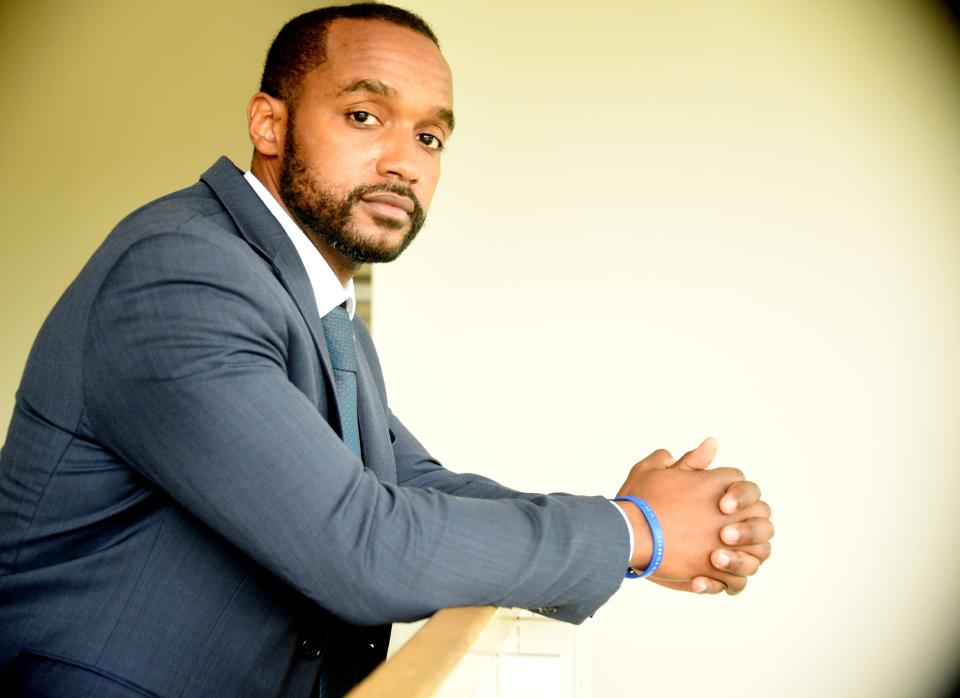Advocates Combat Deepfakes in Louisiana Elections, As Federal Regulations Lag Behind
Louisiana is only one of five states that has not introduced or passed legislation against the use of deepfakes in U.S. elections—even though the mayor of one of its largest cities was the target of a deepfake in the state’s 2022 general election.

Voters with a keen eye would have been able to easily spot the inaccuracies in the deepfake created against former Shreveport, Louisiana Mayor Adrian Perkins. For starters, the commercial showed him as a high school student, getting called to the principal’s office over his performance as mayor. Next came the voice. It sounded like Perkins, but the tone skewed younger.
But all the same—there he was, the mayor of Louisiana’s third largest city—with his head superimposed onto an actor’s body in a primetime television ad just two weeks before the election. He lost that election, garnering less than 17% of the vote.
Did that deepfake sway voters? It’s unlikely. But the introduction of deepfakes in local and federal elections alike has opened a pandora’s box that will be difficult—if not impossible—to close.
The Impact of Deepfakes on the 2024 Election
Craig Holman, a Capitol Hill lobbyist who works in governmental ethics for the nonprofit Public Citizen, understands that it’s still a problem worth fighting.“2024 is going to become the first deepfake election cycle, where these are actually going to influence voters and have an impact on election results,” he tells USA TODAY. “Artificial intelligence has been around for a while, but only in this election cycle have we seen it advance to the point where most people cannot tell the difference between a deepfake and reality. It’s sort of breathtaking how good the AI has become.”
Public Citizen didn’t always focus on election deepfakes. In fact, this is the first year the nonprofit is tackling the issue head-on. Holman said what changed for him was seeing an ad put out by the Republican National Committee immediately after Biden announced he would seek re-election in 2024. What he saw shocked him. The ad showed scenes of President Biden and Vice President Harris laughing together in a room; China bombing Taiwan; thousands of people swarming over the border into the United States; and San Francisco being locked down due to the fentanyl crisis. None of it was real. And even though he knew the images were fake, he couldn’t visually tell the difference. “This is going to cause a lot of confusion in elections,” Holman stresses. “A lot of candidates will be hurt by it and a lot of voters will be deceived.”
Combatting Deepfakes in Louisiana
Public Citizen is largely taking a state-by-state approach to combatting deepfakes, as any official rule from the Federal Election Commission would likely be too late for this year’s election cycle. Holman recently submitted a petition for rulemaking to the Louisiana Board of Ethics, asking for clarification on whether deepfakes fall into Louisiana’s existing law that prohibits false misrepresentation affecting elections. Public Citizen believes that that law would enable the Board of Ethics to pivot to deepfakes and regulate them.
Meanwhile, he’s using a similar tactic across other states, focusing on those with comparable laws that allow their election authorities to independently regulate deepfakes.
For states that don’t have such laws on the books, Holman has drafted a model bill based on the five states with deepfake laws requiring AI disclosures. He pointed to California and Washington as the states with the best laws—they don’t ban deepfakes outright, but merely require a clear disclosure that an ad’s content is fabricated by AI.
Holman says that will be an important distinction between what he considers “good versus risky” deepfake legislation. Good laws will disclose content is fake, as opposed to banning the content altogether.“This is the first time we're considering regulating the content of speech in advertisements, as opposed to requiring disclosure of who paid for it. [The FEC] has been very reluctant to regulate the content of speech.”
Requiring disclosure, Holman argued, “ought to pass first amendment concerns.”Regardless of which bills pass in time for the election, Holman said he hopes they generate public discussion and raise voter awareness about deepfakes.
“A lot of voters already have very little confidence in elections. If we go into the 2024 election with all these deepfakes and misinformation, it's going to really compound the cynicism of elections. Once voters lose confidence in elections, they're losing confidence in democracy.”
This article originally appeared on Aberdeen News: Advocates Are Combatting Deepfakes in Louisiana Elections

